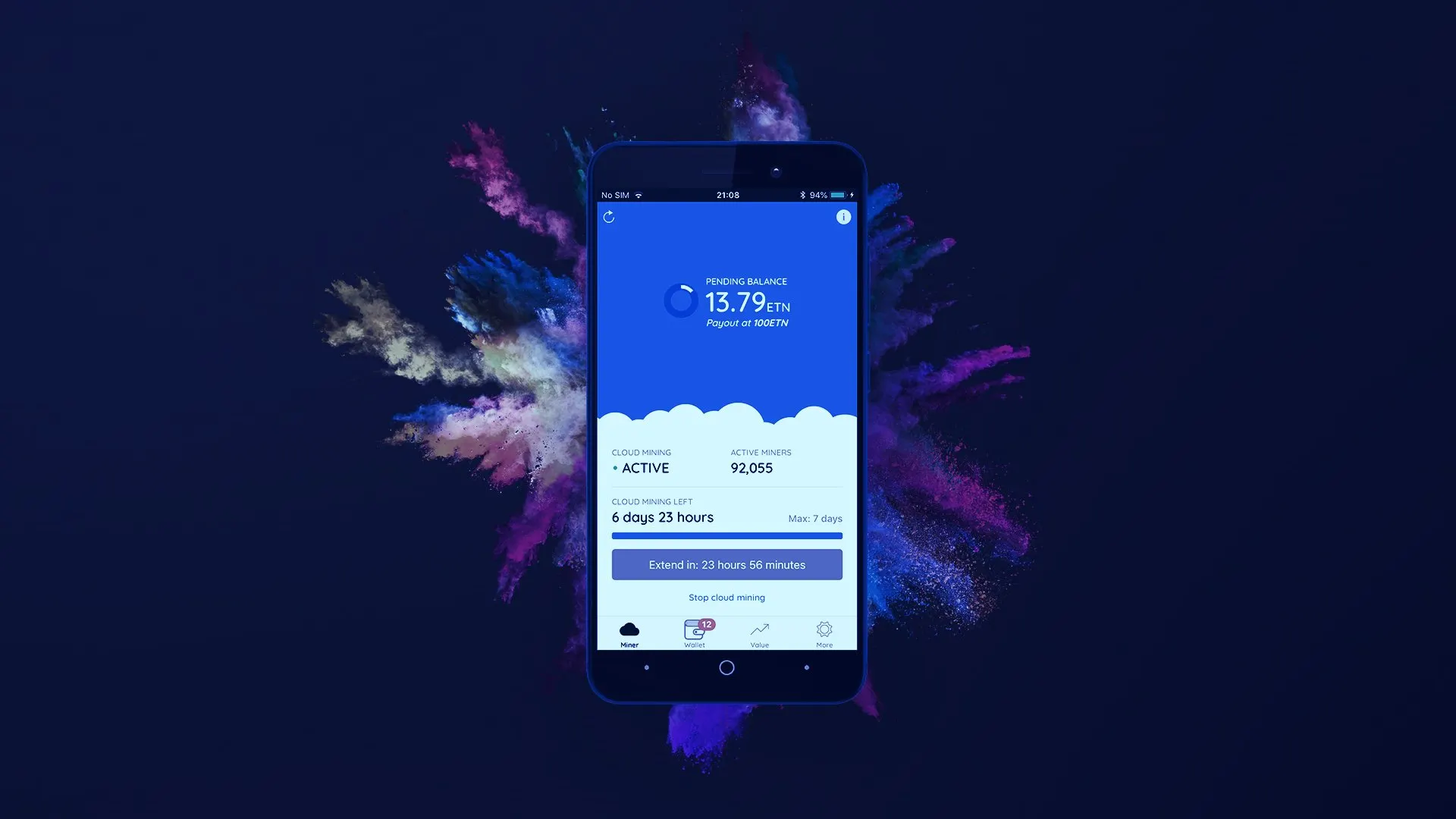UK-based Electroneum is a cryptocurrency startup that likes to be first. It was first on the scene with a mobile “mining” app, to enable users to “mine” its cryptocurrency, ETN, on their smartphones; it was the first crypto company to join mobile operators’ association, the GSMA and the first to implement KYC (Know Your Customer) and AML (Anti Money Laundering) compliance, according to Electroneum. However, it’s NOT the first company to launch a crypto-enabled mobile. But, today, at the telecom industry’s flagship event, the Mobile World Congress (MWC) in Barcelona, Electroneum launches the M1, the first mobile phone which allows users to “mine” crypto and so—eventually—recoup the phone’s cost. Neat or not?
The startup’s smartphone costs $80—though new, and fully functioning, it has the same, minimal features one would expect to find in a reconditioned handset for that price. It also comes pre-configured with Electronuem’s mobile mining app and new, “cloud mining” technology, which lets users earn ETN through the app, even without internet access.
How on earth can it be mining when currencies like bitcoin eat vast sums of electricity to do the very same thing? Electroneum says it’s not mining per se—not in the way that bitcoin and ethereum is mined. Such a process would immediately drain the battery and turn this elegant, ‘Electroneum Blue’-styled device into a quivering heap of slush. Instead, Electroneum has a nifty “mining simulation” going, and small amounts of ETN are regularly airdropped into users wallets.
So—obvious question—how long before one’s able to “mine” back the cost of the phone? Minimum 24 months we estimate; the mount of ETN distributed is capped at $3 a month. Still, that’s on a par with deals from mainstream mobile operators, where you pay off the phone over 24 months in cash. So earning the money back is an attractive option—particularly in the developing world, which Electroneum is targeting. And ETN can also be used to pay for services such as mobile top-ups (airtime and data) and online services.
Simple aims
Electroneum wants to simplify cryptocurrency for people with limited education and means so its app is straightforward and requires minimal knowledge of cryptocurrencies. “Your average day-to-day person—just needs things to be simple,” Electroneum founder Richard Ells told Decrypt when we sat down with him recently. “If you tick that box, then people will use it.” (For more from Richard Ells, please see our feature interview here.)
The device, however, promises “extensive functionality,” including 4G and dual-sim capabilities. In a lot of developing countries, people have two or more sims cards, explains Ells. They swap them around to capitalize on even the smallest price fluctuations between operators’ for different services. “Sim penetration is 130 percent, because nearly everyone has two virtual sims,” he says. “So two sim companies can have 70 percent share each.”
Competition
Electroneum declined to say whether the M1 was optimized in any way for mining or any other crypto-related activity. That makes it difficult to compare with rival offerings. Samsung launched its Galaxy S10 complete with cryptocurrency wallet, earlier this month; in 2018 Sirin Labs and HTC also launched blockchain-based devices. These smartphones have highly optimized cameras, RAM, and software to boost their level of operation. But they’re also worth almost $1,000, which makes the M1 look like a very good deal indeed.
Dash’s KRIP smartphone is a more comparable competitor. It retails at $100 and was launched last August. Dash teamed up with Kripto Mobile to release the Dash-enabled phones in Venezuela and later, it hopes, neighboring countries. They come with pre-downloaded Dash wallets, a paper wallet with some Dash, and other incentives.
Industry partners
According to Ells, Electroneum has no plans to distribute the M1 in Latin America. But it will be heartened to hear that the KRIP quickly sold more than 66,000 devices, according to Dash at least.
Unlike Dash, Electroneum has yet to divulge details about industry partners contributing to the M1. Ells would only reveal that the phone was developed with “ a world-class team consisting of telecommunications, manufacturing, emerging area mobile-operators, product design and marketing specialists, all helping to make this utopian vision of ours a reality.”
The startup does say that the M1 has GSMA approval and Google GMS certified qualifications—key for compatibility with all network operators around the world.
While Electroneum is marketing it as the phone “which pays you back,” if the M1’s functionality is up to scratch, its popularity need not rely on users believing they must stay loyal to the crypto for long enough to pay it off—although that’s clearly what Electroneum is hoping to achieve. The low cost, crypto mining capabilities and general smartphone-ness make it an interesting proposition. Unfortunately, Electroneum claims to have shipped all 500 of the initial batch, without sending one to us, so we can’t tell you for sure.

